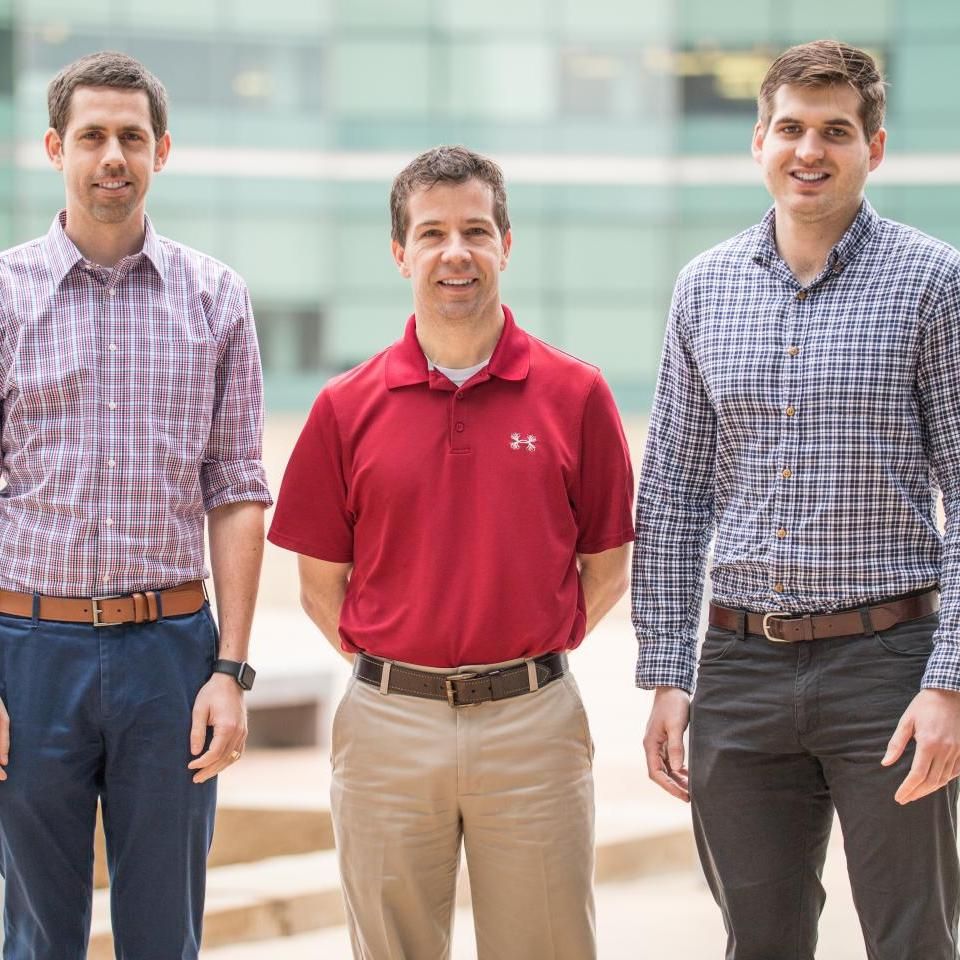Article
Vagus Nerve Stimulation Assists in Stroke Recovery
Author(s):
The success of VNS during post-stroke rehab has led to the enrolling of a clinical trial to test the therapy in patients who have experienced a stroke.

Left to Right:
Seth Hays, PhD; Michael Kilgard, PhD; Eric Meyers
Credit: University of Texas at Dallas
Vagus nerve stimulation (VNS), in conjunction with conventional rehabilitation services, can double lasting recovery for forelimb supination and simple motor tasks, and improve the structural plasticity in motor networks for patients that have had a stroke.
A team of researchers from the University of Texas at Dallas, led by Michael Kilgard, PhD, BSc, paired VNS with a physical therapy task to improve upper limb function in rodents, which results in doubled long-term recovery rates compared to the standard therapy methods.
“Our experiment was designed to ask this new question: After a stroke, do you have to rehabilitate every single action?” Kilgard said in a statement. “If VNS helps you, is it only helping with the exact motion or function you paired with stimulation? What we found was that it also improves similar motor skills as well and that those results were sustained months beyond the completion of VNS-paired therapy.”
Kilgard noted that a clinical trial in humans is now enrolling nationwide. The trial is aiming to recruit 120 participants at 15 sites and is estimated to be completed by June 2021.
“People in Dallas can enroll now—which is only fitting because this work developed here, down to publishing this in a journal of the American Heart Association, which is based here in Dallas. This is a homegrown effort,” he said.
The rodents included in the trial were exposed to brief bursts of VNS during their motor rehabilitation for 4 weeks. Their durability was then tested for 2 months following the cessation of the VNS therapy.
Those with the VNS were shown to have tripled synaptic connections from the motor cortex to the muscles of the forelimb in question compared to just the rehab. The benefits were shown to persist months after the halting of VNS.
“We have long hypothesized that VNS is making new connections in the brain, but nothing was known for sure,” Seth Hays, PhD, an assistant professor of bioengineering said in a statement. “This is the first evidence that we are driving changes in the brain in animals after brain injury. It’s a big step forward in understanding how the therapy works—this reorganization that we predicted would underlie the benefits of VNS.”
Somewhat unexpectedly, the rats also showed improvement in an untrained task emphasizing volitional forelimb strength—implying a gain in generalized forelimb recovery. The findings reveal that the medical community is one step closer to creating guidelines for the standardized use of VNS post-stroke.
In addition, VNS offers a multitude of possibilities for therapies, including helping prevent the risk of bleeding, one of the biggest infrequently discussed issues during surgeries. Jared Huston, MD, an assistant professor of surgery and science education at Hofstra Northwell School of Medicine, told MD Magazine about how he and colleagues are working on a neural tourniquet that can “activate the vagus nerve, and then the vagus nerve, through the biology in the body, can actually reduce bleeding if you're injured.”
The study, “Vagus Nerve Stimulation Enhances Stable Plasticity and Generalization of Stroke Recovery,” was published in Stroke.





